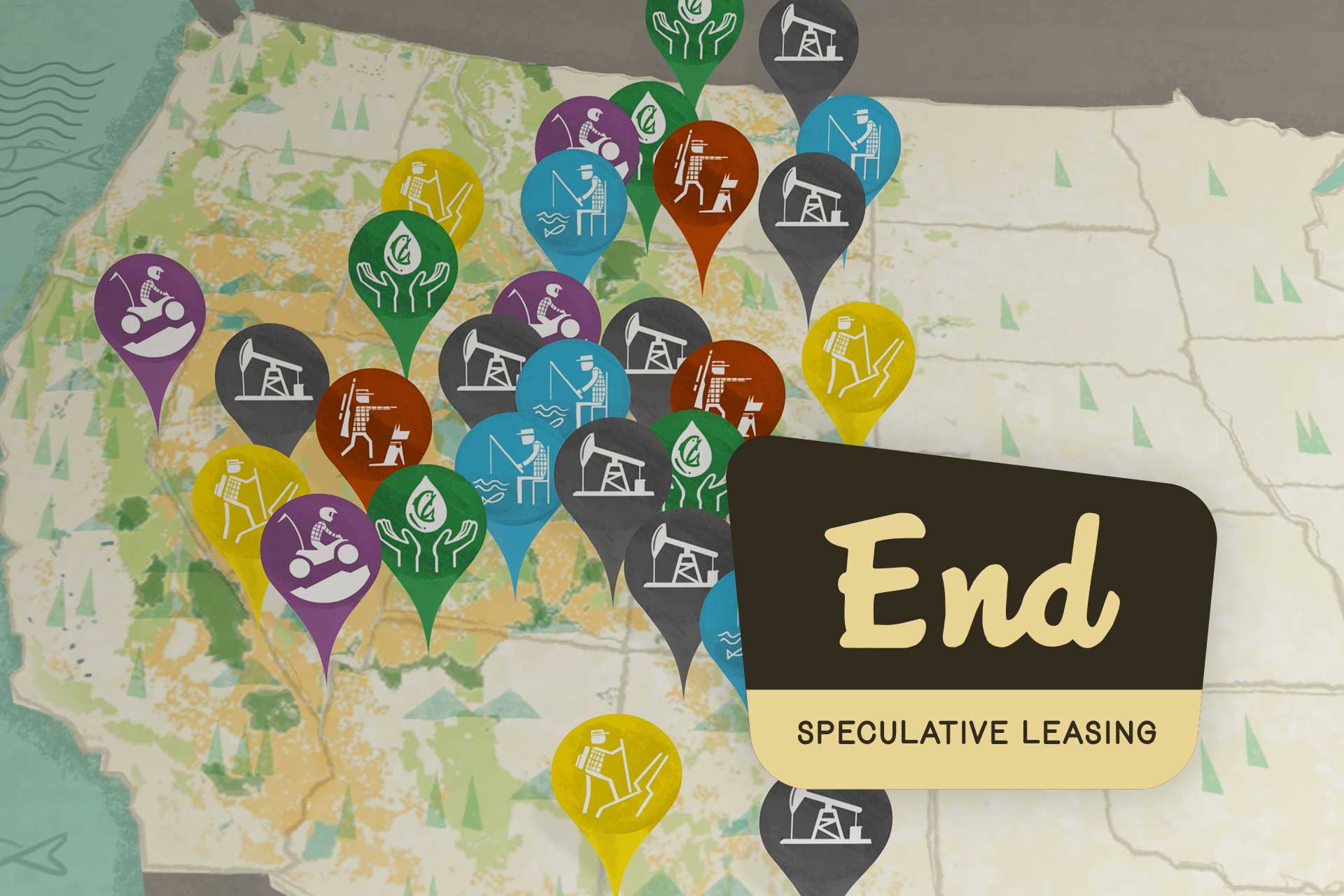We’ve seen plenty of attempts to pit conservation against energy development in recent weeks, but the reality of what is best both for community and conservation probably lies somewhere in that murky grey area that can never quite be captured in a headline.
At issue is the ever-present question of balance: What do we prioritize and how do we prioritize it when it comes to the lands that belong to all of us?
Last month, the House Natural Resources Subcommittee on Energy and Mineral Resources conducted a hearing on federal oil and gas leasing and development policies for public lands. The long and short of it is our approach to developing oil and gas on public lands is far outdated. While our understanding of fish, and wildlife and energy development is akin to landing a rover on Mars, our approach to the rules is still living in the era of the fax machine.
Five pieces of legislation are being examined today, including bills that reduce impacts to fish and wildlife, protect water resources, increase bonding and reclamation requirements, strengthen landowner rights, increase transparency, and modernize lease bids and royalty rates. The hearing also comes on the heels of legislation introduced last week by Senator Cortez Masto (D-NV) to curtail the practice of speculative leasing (thank you Sen Cortez Masto!).
Taken together, the quintet of bills is big step forward to modernize the antiquated federal oil and gas leasing system. Under the current system anonymous speculators have been able to nominate millions of acres of public lands for oil and gas leasing without regard for the potential to actually produce energy resources.
Basically, we’re burning time and money we don’t have, creating mountains of pointless paperwork and arguing over something that is highly unlikely to happen.
This system does not benefit American taxpayers and creates unnecessary land management conflicts with fish, wildlife, outdoor recreation and other multiple-use activities.
For more than a decade Trout Unlimited (TU) has engaged with federal land management agencies in the oil and gas lease sale process, including reviewing proposed leases in trout habitat and engaging directly with agencies to avoid and minimize impacts. One troubling trend we have seen is the continued nomination and offering of hundreds of thousands of acres of oil and gas leases on public lands that offer little if any potential for producing oil and gas.
For instance, in Nevada, only fifteen percent of public lands show promise for actually producing oil and gas yet 2.8 million acres of public land have been nominated for leasing since 2017. Yet, the BLM continues to entertain these proposals, diverting resources away from other state and federal agency programs to evaluate these dubious lease nominations. Moreover, these proposals spur conflict as oil and gas leases are nominated in areas that are highly regarded by anglers and hunters.
We’ve seen this issue play out in place like Nevada’s Ruby Mountains, where last week Senator Cortez Masto introduced legislation to withdraw public lands managed by the U.S. Forest Service, as well as the Ruby Lakes National Wildlife Refuge, known for its excellent fishing opportunities. Similarly, in Colorado’s San Luis valley we fought back 146,000 acres of speculative oil and gas leases proposed on the Rio Grande National Forest that would have threatened sensitive populations of native Rio Grande cutthroat trout.
Responsible energy development and conservation need not be mutually exclusive, but it takes the right policies to ensure this tenuous balance moving forward. And decades-old polices are not adequate to protect the fish and wildlife resources that are so important to public land anglers and hunters throughout the West.
It’s time to bring balance back to public land’s management. It’s time to advance these kinds of sensible solutions that will help usher in a new era of responsible energy development.
Learn more about speculative leasing and explore your watershed with Trout Unlimited’s energy assessment mapping tool.
Legislation considered in Tuesday’s hearing that Trout Unlimited supports (read our letter) include:
- Bonding Reform and Taxpayer Protection Act (Representative Alan Lowenthal, D-Cali.),
- Restoring Community Input and Public Protections in Oil and Gas Leasing Act (Rep. Mike Levin, D-Cali.)
- Ending Taxpayer Welfare for Oil and Gas Companies Act (Rep. Katie Porter, D-Cali.)



